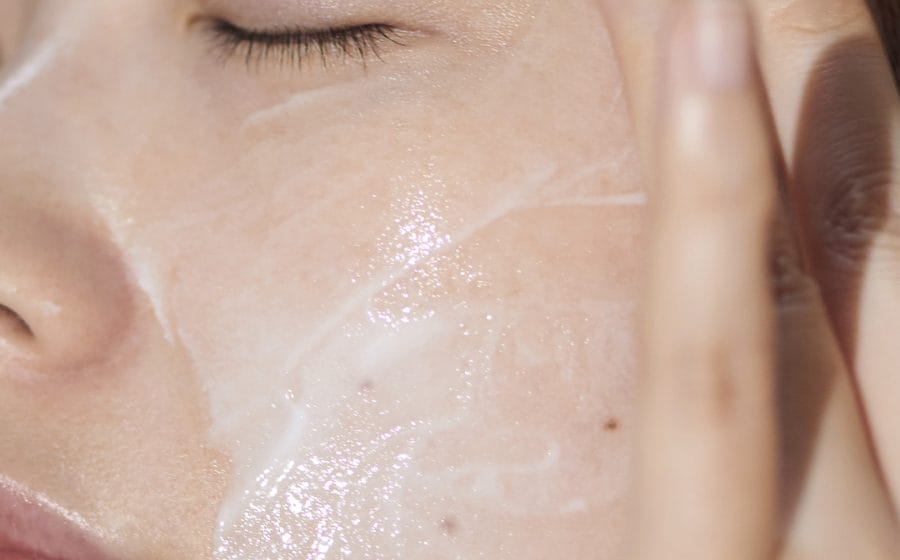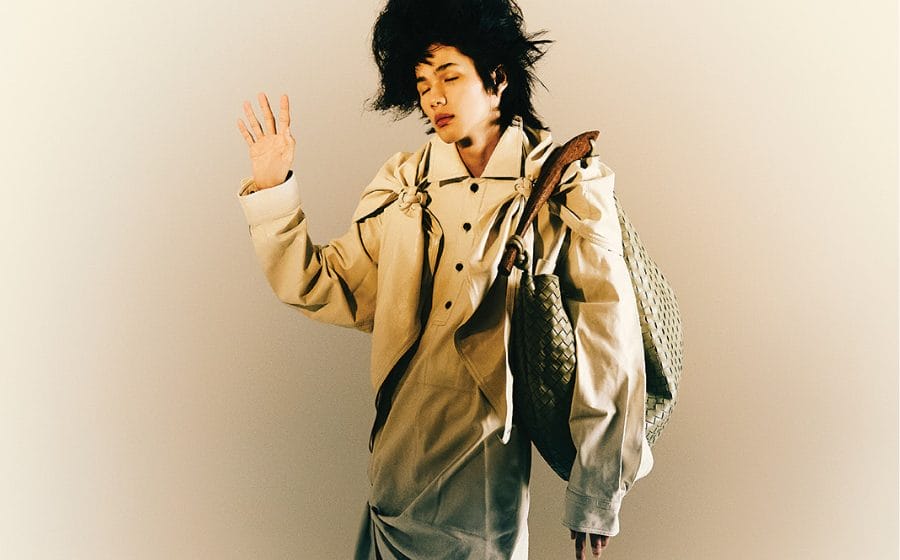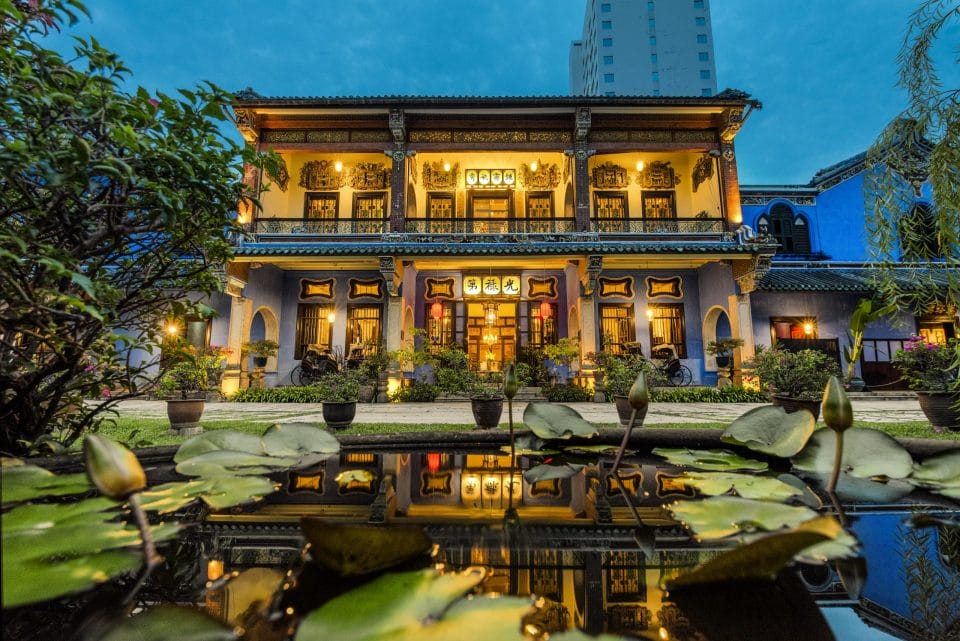 Among the sea of modern developments, these boutique hotels stands out from the pack with their one-of-a-kind allure.
Among the sea of modern developments, these boutique hotels stands out from the pack with their one-of-a-kind allure.
Cheong Fatt Tze
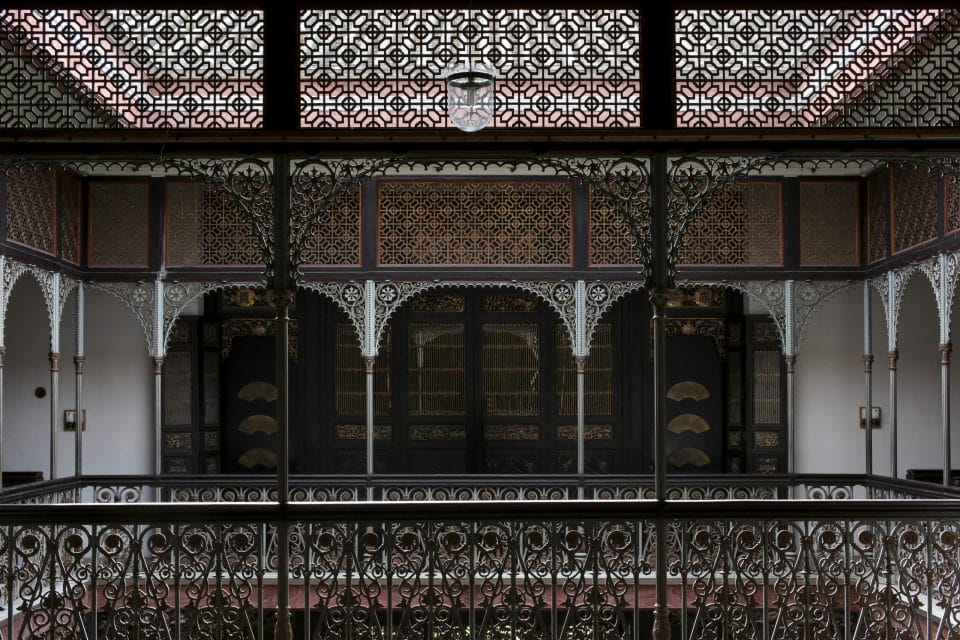 As a UNESCO heritage site, George Town is rife with historic buildings, and the Cheong Fatt Tze Mansion is one of them. Built around the late 19th century, the Blue Mansion, known for gracing the Hollywood flick Crazy Rich Asians, represents Peranakan culture — the backbone of Chinese migrants who settled in Penang and intermarried with local Malays. This century-old building is a symbol of love of the wealthy Chinese businessman whom the mansion was named after for his beloved wife. However, the mansion fell into disrepair when the owner passed away. It was not until Laurence Loh, an earnest institution behind award-winning restorations in Malaysia, took up the challenge to bring back the heyday of the Cheong Fatt Tze Mansion. Once a down-at-heel dwelling, the Cheong Fatt Tze Mansion is now an award-winning boutique hotel and a landmark that tourists do not miss out on in their itinerary.
As a UNESCO heritage site, George Town is rife with historic buildings, and the Cheong Fatt Tze Mansion is one of them. Built around the late 19th century, the Blue Mansion, known for gracing the Hollywood flick Crazy Rich Asians, represents Peranakan culture — the backbone of Chinese migrants who settled in Penang and intermarried with local Malays. This century-old building is a symbol of love of the wealthy Chinese businessman whom the mansion was named after for his beloved wife. However, the mansion fell into disrepair when the owner passed away. It was not until Laurence Loh, an earnest institution behind award-winning restorations in Malaysia, took up the challenge to bring back the heyday of the Cheong Fatt Tze Mansion. Once a down-at-heel dwelling, the Cheong Fatt Tze Mansion is now an award-winning boutique hotel and a landmark that tourists do not miss out on in their itinerary.
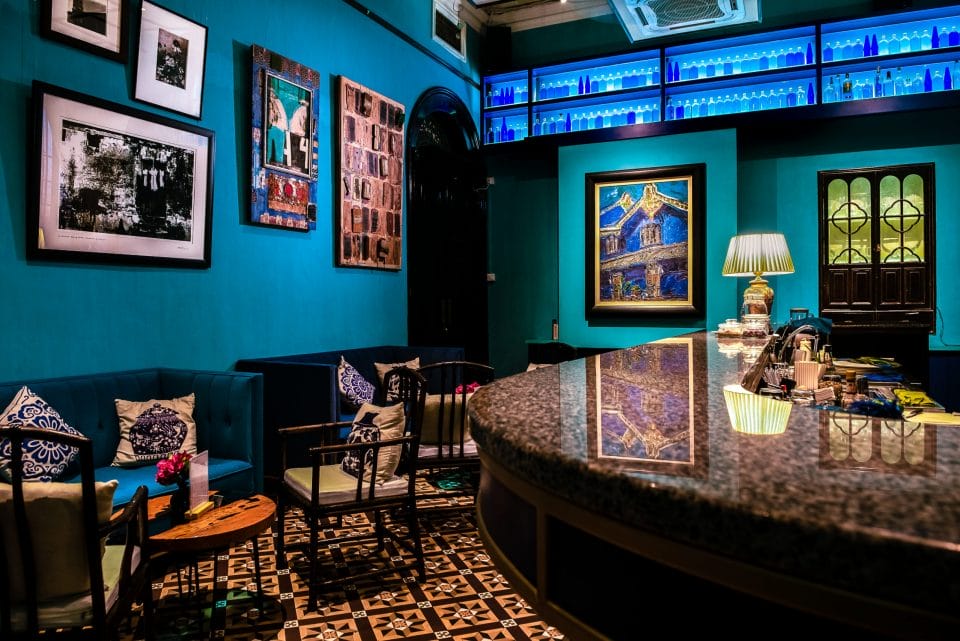 Boasting a facade tinged in vibrant indigo facing a lotus pond, the winner of “Global Luxury Heritage Hotel” is where every guest gets to experience the marriage of East and West. Being furnished with antique paraphernalia that has caught the eyes of the production team behind Indochine — 19th-century ebony chairs, tables inlaid with mother-of-pearl, Chinese carved screens and Gothic windows bedecked in Art Nouveau glass— the Cheong Fatt Tze Mansion is home to 18 individually-decorated guest rooms including The Ming Collection, The Liang Collection, The Tang Suites and The Han Suites. A stay at the heritage hotel is topped off with an unforgettable dining experience that shares the complementary concept of the accommodation itself. Think about the Indigo restaurant that used to be Cheong’s master suites, where you will be treated to an east-west fusion, or Mangga, which serves up palatable contemporary comfort foods.
Boasting a facade tinged in vibrant indigo facing a lotus pond, the winner of “Global Luxury Heritage Hotel” is where every guest gets to experience the marriage of East and West. Being furnished with antique paraphernalia that has caught the eyes of the production team behind Indochine — 19th-century ebony chairs, tables inlaid with mother-of-pearl, Chinese carved screens and Gothic windows bedecked in Art Nouveau glass— the Cheong Fatt Tze Mansion is home to 18 individually-decorated guest rooms including The Ming Collection, The Liang Collection, The Tang Suites and The Han Suites. A stay at the heritage hotel is topped off with an unforgettable dining experience that shares the complementary concept of the accommodation itself. Think about the Indigo restaurant that used to be Cheong’s master suites, where you will be treated to an east-west fusion, or Mangga, which serves up palatable contemporary comfort foods.
The Edison George Town
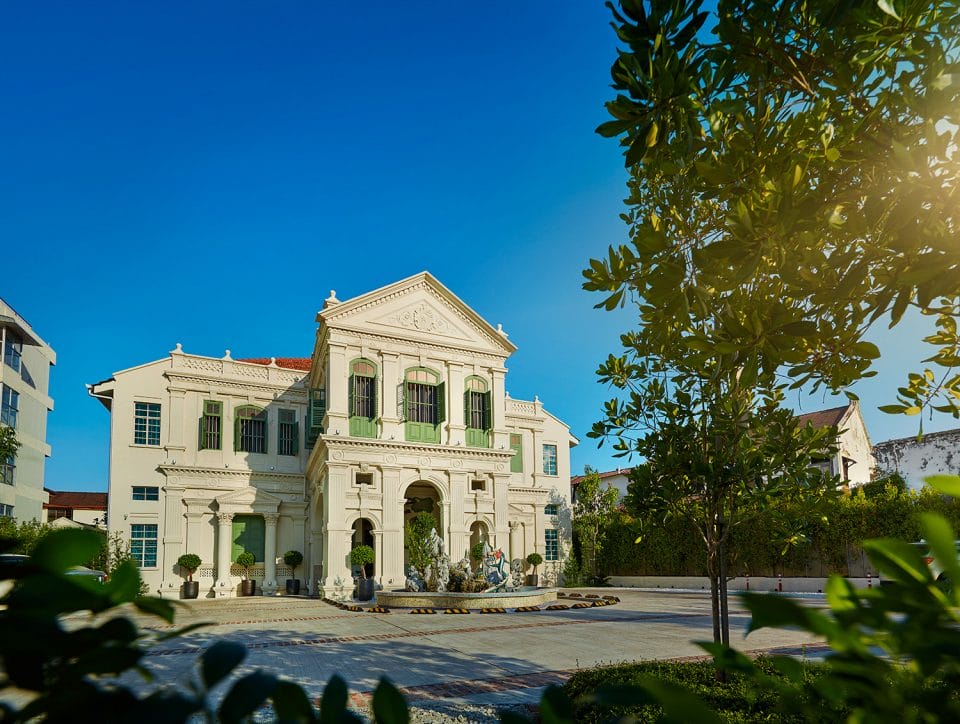 Another history-laden accommodation from the exhaustive list of recommended stays is The Edison George Town. Named after Sir George Alexander William Leith, the first Lieutenant-Governor of the Prince of Wales Island, the Anglo-Colonial lodging was built by a Hakka tycoon Yeo Wee Gark, who commissioned architect David Nathaniel to build the heritage hotel in 1906. The building was transformed into a hotel after the Second World War after being used as an administrative centre during the Japanese Occupation. 2014 was a watershed moment for the colonial mansion as it was revamped and rebranded as The Edison George Town that we know today. With a facade instilled in the allure of neoclassicism and a dragon fountain, the colonial mansion is a clash of the West and the East.
Another history-laden accommodation from the exhaustive list of recommended stays is The Edison George Town. Named after Sir George Alexander William Leith, the first Lieutenant-Governor of the Prince of Wales Island, the Anglo-Colonial lodging was built by a Hakka tycoon Yeo Wee Gark, who commissioned architect David Nathaniel to build the heritage hotel in 1906. The building was transformed into a hotel after the Second World War after being used as an administrative centre during the Japanese Occupation. 2014 was a watershed moment for the colonial mansion as it was revamped and rebranded as The Edison George Town that we know today. With a facade instilled in the allure of neoclassicism and a dragon fountain, the colonial mansion is a clash of the West and the East.
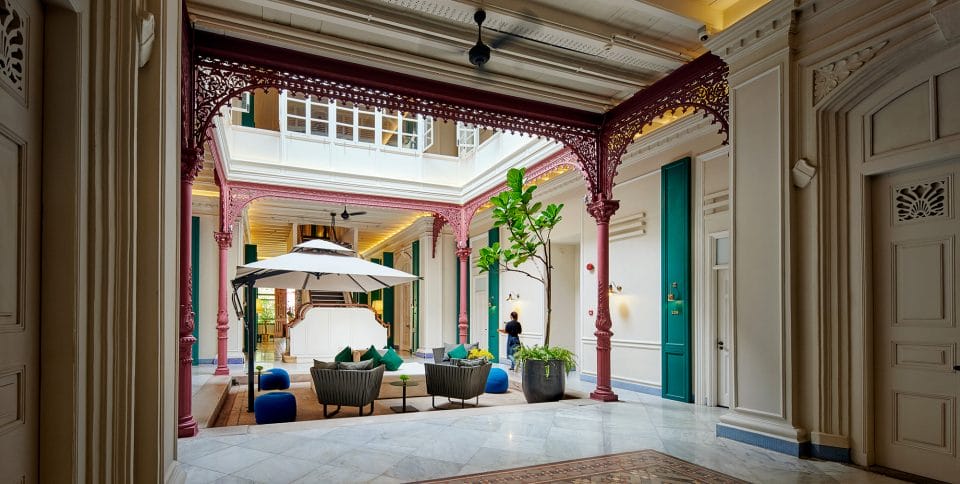 Perfectly capturing the Oriental charm with a dose of modernity, the Edison George Town is brought to life with lush colours and exquisite detailing like patterned tile work, bone china-inspired art, mid-century styled lounge furniture and mood lighting. Like the Cheong Fatt Tze Mansion, the heritage hotel is ingrained in the influence of Peranakan culture, where the spaces are linked from a centralised entrance to segregated halls with a courtyard in the middle. The oriental charm segues seamlessly from the opulent setting to the cosy rooms. Furnished with an interplay of colonial and oriental influence, the tastefully-crafted boutique hotel houses 35 rooms with Deluxe, Deluxe Premium and Suite options.
Perfectly capturing the Oriental charm with a dose of modernity, the Edison George Town is brought to life with lush colours and exquisite detailing like patterned tile work, bone china-inspired art, mid-century styled lounge furniture and mood lighting. Like the Cheong Fatt Tze Mansion, the heritage hotel is ingrained in the influence of Peranakan culture, where the spaces are linked from a centralised entrance to segregated halls with a courtyard in the middle. The oriental charm segues seamlessly from the opulent setting to the cosy rooms. Furnished with an interplay of colonial and oriental influence, the tastefully-crafted boutique hotel houses 35 rooms with Deluxe, Deluxe Premium and Suite options.
The Chow Kit – an Ormond Hotel
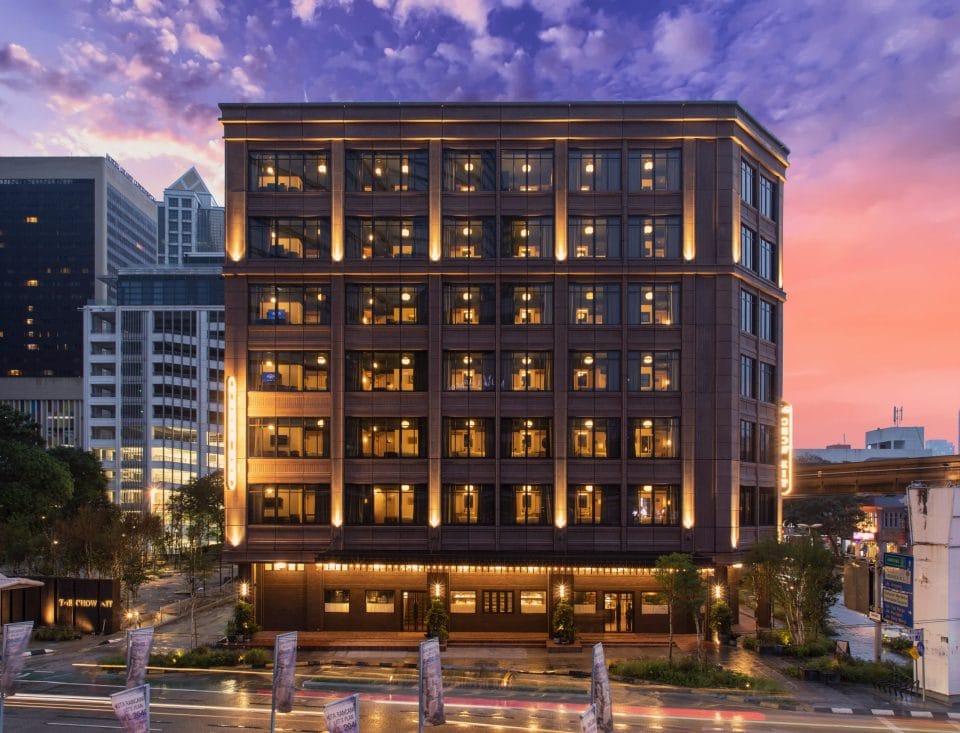 Awarded one of the best hotels in the Michelin Guide’s “Best Hotels in Malaysia”, The Chow Kit — An Ormand Hotel is regarded as a cultural phenomenon in the Chow Kit vicinity, a rising neighbourhood that burgeons with hip cafes and conceptual boutique hotels. Bringing old-world glamour to the hustle and bustle of city life, the award-winning accommodation inspired by Loke Chow Kit, Malaysia’s first tycoon that made his living with a tin-mining business, is gentrified by Brooklyn-based multidisciplinary design firm Post Company (formerly Studio Tack).
Awarded one of the best hotels in the Michelin Guide’s “Best Hotels in Malaysia”, The Chow Kit — An Ormand Hotel is regarded as a cultural phenomenon in the Chow Kit vicinity, a rising neighbourhood that burgeons with hip cafes and conceptual boutique hotels. Bringing old-world glamour to the hustle and bustle of city life, the award-winning accommodation inspired by Loke Chow Kit, Malaysia’s first tycoon that made his living with a tin-mining business, is gentrified by Brooklyn-based multidisciplinary design firm Post Company (formerly Studio Tack).
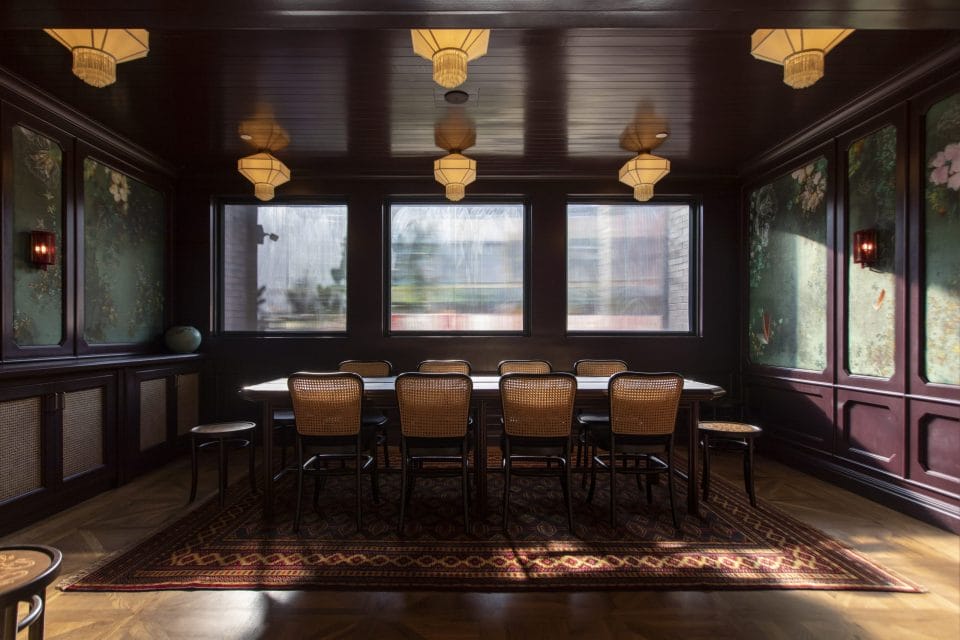 “We were inspired by a richer, more romanticised time — a bit of film noir and the sixties and seventies decades,” shared Jou-Yie Chou, partner at Post Company. Brimming with the extravagance of Art Deco — from the visually-pleasing colour palette to stylishly gilded fixtures to Hollywood Glam furniture — the swankily smartened-up lodging is a microcosm of the late-night revelry in the ’70s and ’80s that is prevalent at the alley and bars tucked away at Chow Kit. Home to 86 guest rooms and 27 suites, The Chow Kit – An Ormand Hotel is a haven for foodies and art epicureans. It boasts the highly-acclaimed The Chow Kit Kitchen & Bar; and an art collection curated by Liza Ho, founder of The Back Room KL. Apart from the one-of-a-kind stay, the plush boutique hotel is a stone’s throw away from the must-visits like tourist attractions, culinary hang-outs and the city’s best watering holes.
“We were inspired by a richer, more romanticised time — a bit of film noir and the sixties and seventies decades,” shared Jou-Yie Chou, partner at Post Company. Brimming with the extravagance of Art Deco — from the visually-pleasing colour palette to stylishly gilded fixtures to Hollywood Glam furniture — the swankily smartened-up lodging is a microcosm of the late-night revelry in the ’70s and ’80s that is prevalent at the alley and bars tucked away at Chow Kit. Home to 86 guest rooms and 27 suites, The Chow Kit – An Ormand Hotel is a haven for foodies and art epicureans. It boasts the highly-acclaimed The Chow Kit Kitchen & Bar; and an art collection curated by Liza Ho, founder of The Back Room KL. Apart from the one-of-a-kind stay, the plush boutique hotel is a stone’s throw away from the must-visits like tourist attractions, culinary hang-outs and the city’s best watering holes.
Once you’re done with this story on boutique hotels, click here to catch up with our May 2023 issue

